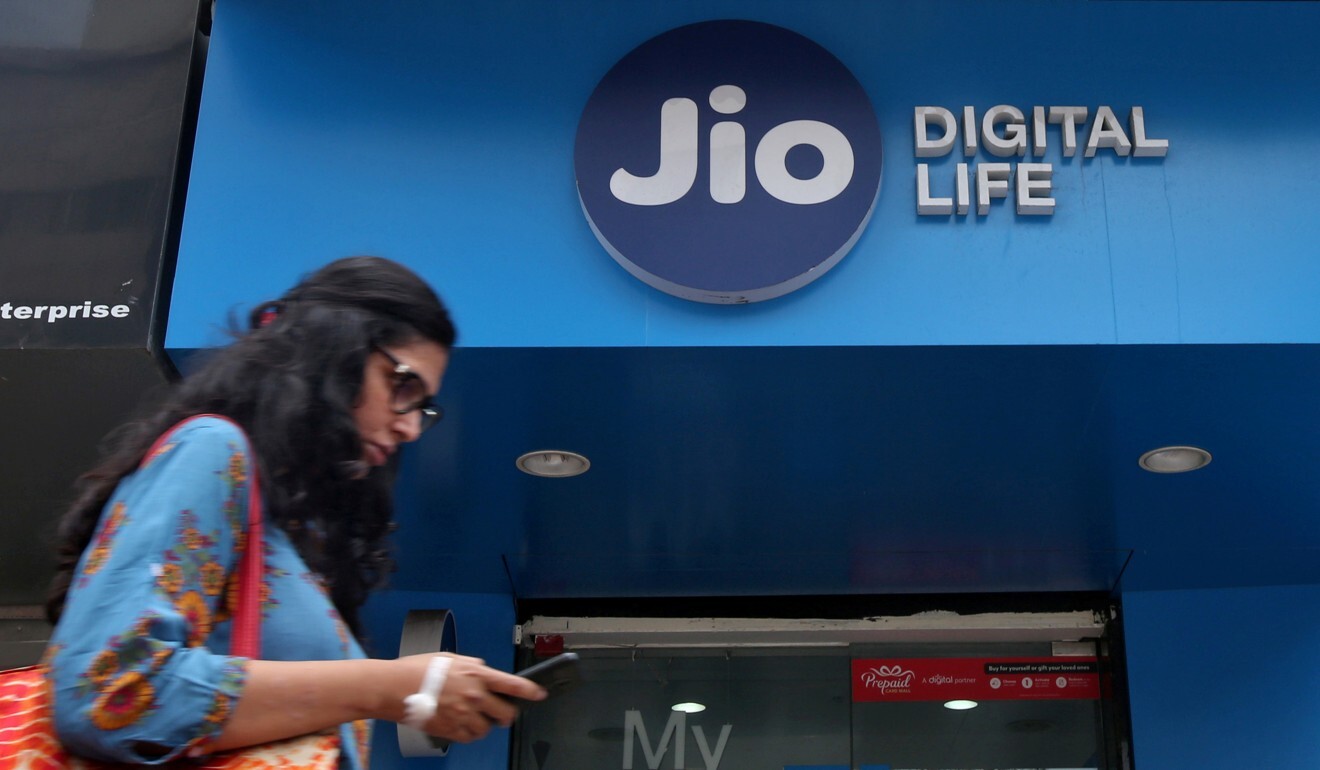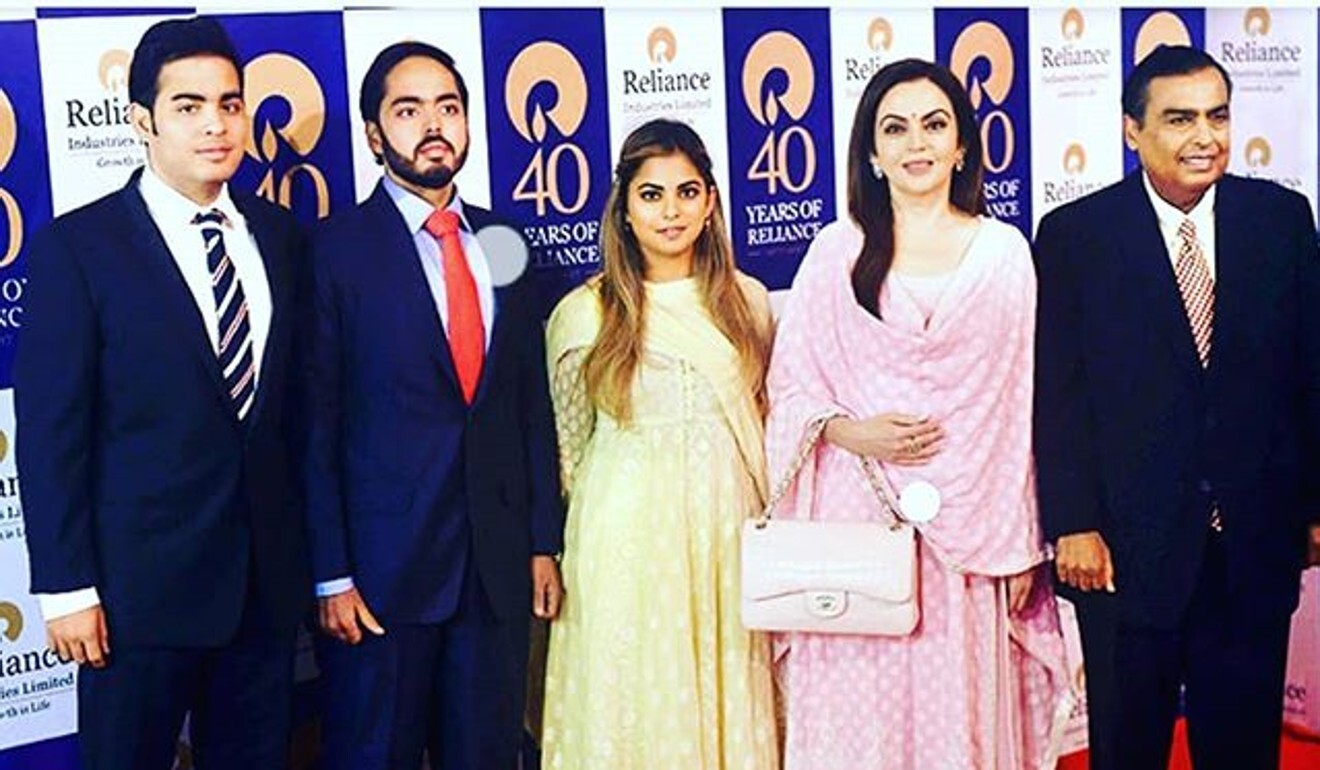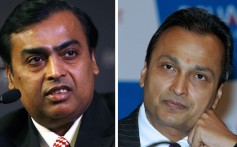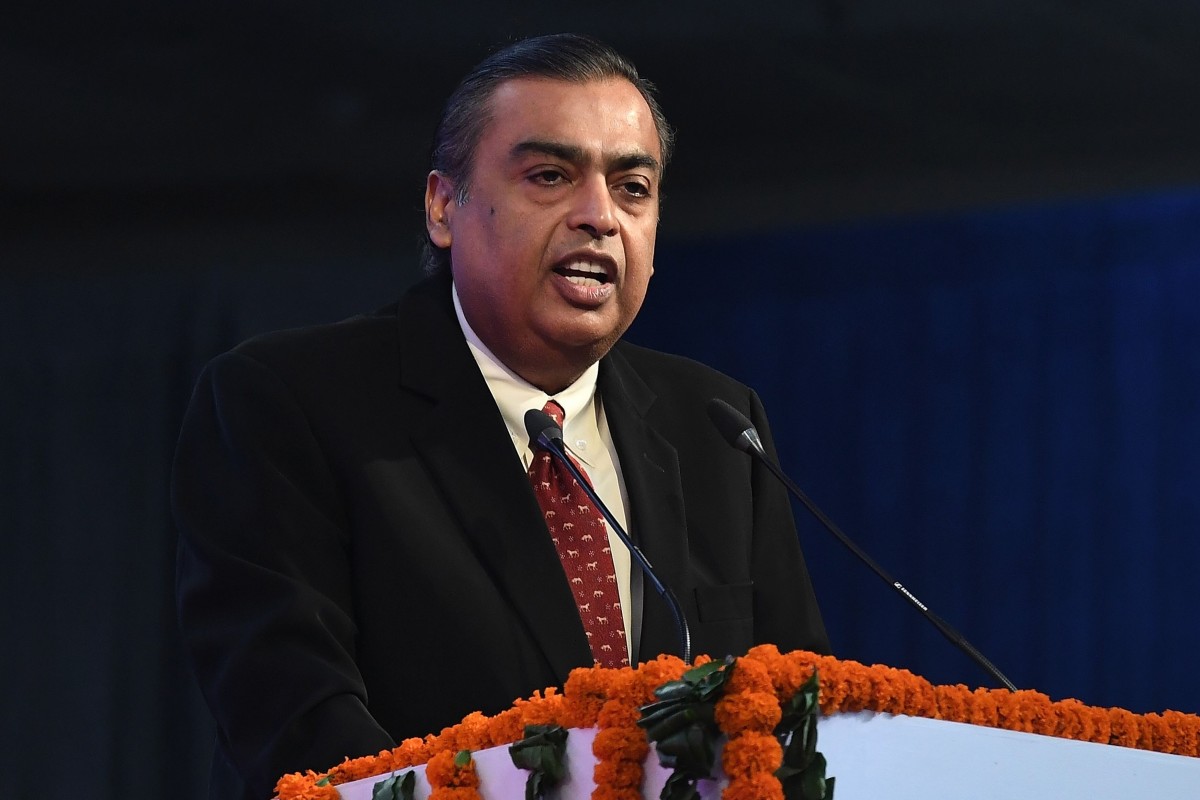- The 63-year-old tycoon wants to radically reduce his conglomerate’s dependence on the energy sector through diversification
- His three Ivy League-educated children already play an active role in reorienting the colossal enterprise, analysts say, and could take over soon
has raised some US$6.4 billion amid the Covid-19 pandemic as he looks to transition his Reliance Industries conglomerate towards technology and retail, with Saudi Arabia’s Public Investment Fund announcing this week it would take a 2.04 per cent stake in its retail arm for 95.55 billion rupees (US$1.3 billion).
But Asia’s richest man also has another goal in mind: carving up his US$200 billion empire into three business areas to bestow upon his children Akash, Isha, and Anant.

There have been no public announcements about the succession. But market watchers who have scrutinise the fortunes of India’s most influential business leader have interpreted the 63-year-old Ambani’s move to radically reduce his conglomerate’s dependence on the energy sector, diversify into retail and digital services and rejig company shareholdings as a sign he is preparing for a generational transition.

, Ambani could secure unrivalled dominance in the sector.
Sanjiv Bhasin, director of the financial services firm IIFL Securities and a long-time observer of Reliance’s manoeuvres, said Ambani was “taking the bull by the horns” in the digital space.

“Reliance’s technology push has come from the twins [Isha and Akash]. They’re very adamant in the Jio formation and entering digital services,” Bhasin said.
“It’s clear from the market movements that new generation leaders are calling the shots and not old-timers given the massive amount of money they have received as funding in the pandemic. It is a well-thought-out plan.”
.
which played out poorly in public. They eventually reached an amicable solution following years of bitter infighting not to step on each others’ toes, thanks to their mother’s mediation efforts. But Anil’s businesses collapsed and he now faces mounting legal battles as three Chinese banks look to recover more than US$700 million.
“This can be stated with conviction as the family has witnessed the situation at the demise of the founder when there was no defined succession planning,” he said.
In August, Indian business daily The Mint reported that Ambani was setting up a “family council” comprising close relatives to ensure a smooth transition of Reliance’s governance structure to his three children.
Reliance has rejected that report and did not answer any of This Week in Asia’s questions about it.
“Family businesses when they reach the third generation, they either wind up or get sold. Out of 100 family enterprises, just 13 survive in the third generation in most democratic countries usually,” she said.


“When Dhirubhai Ambani started, Reliance was a capital-intensive and labour-intensive company when it was into textiles and later into petrochemicals. Mukesh took the company and put it on the top [in the energy sector]. Taking the group to the next level is an immense challenge for the next-gen leaders.”
Both Dixit and Bhasin emphasised that for Reliance to survive and succeed under its new leaders, they needed to hand over the day-to-day operations to professionals while keeping the business’ entrepreneurial spirit alive.
Additional reporting by Bloomberg



